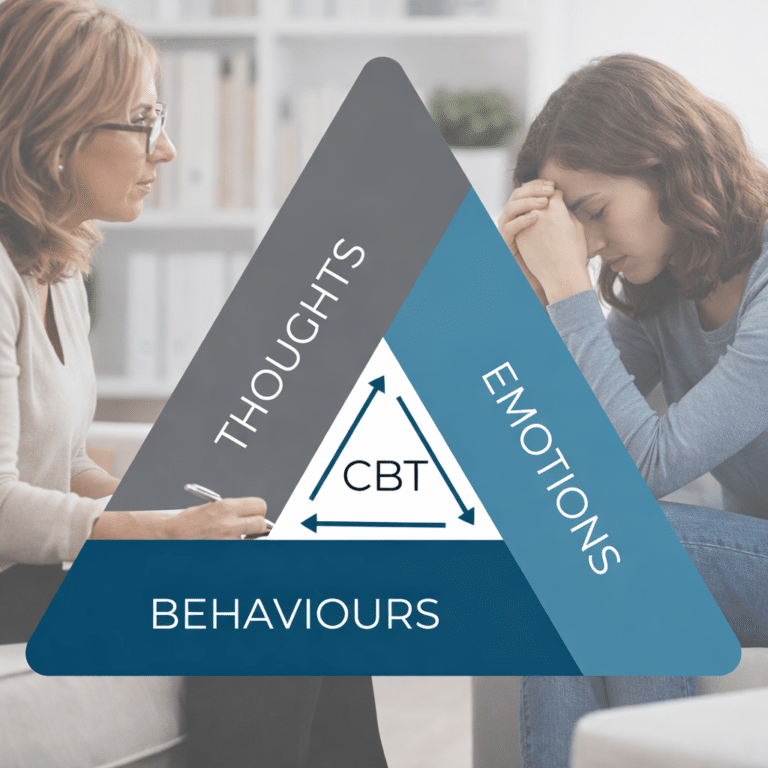Borderline Personality Disorder Treatment Psychotherapy Approaches Explained

Sydney Johnston

Living with Borderline Personality Disorder (BPD) can feel overwhelming. The mood swings, impulsive actions, and fragile sense of self aren’t just symptoms; they create powerful ripples that affect daily life and relationships. Understanding this impact is the first step toward finding hope. Through effective strategies like psychotherapy, people can regain control and build a better, more stable well-being.
What is Borderline Personality Disorder (BPD)?
Borderline Personality Disorder is a complex mental health condition marked by emotional instability, intense fears of abandonment, unstable relationships, impulsivity, and a fragile sense of self. It affects about 1.4% to 3.5% of adults in the U.S.—with higher rates in clinical settings.
People with BPD experience rapid mood changes and feel emotions deeply and quickly. What might seem like a small stressor to others can trigger an intense and overwhelming reaction, making emotional stability feel frustratingly out of reach.

How does BPD Affect Daily Life?
BPD’s instability touches every corner of life:
- Relationships often swing from intense closeness and admiration to sudden devaluation, creating a cycle of frequent conflict and painful isolation.
- Impulsivity may lead to dangerous behaviors—substance misuse, risky sexual interactions, reckless driving—or self-harm in up to 75% of cases; and sadly, about 10% die by suicide.
- Work and routine often suffer—unpredictable moods and impulsive choices can disrupt performance and consistency.
- Physical health can decline due to chronic stress, immune strain, and neglect—leading to issues like chronic pain, cardiovascular problems, and poor self-care.
What Happens if BPD is Untreated?
If left untreated, the consequences of BPD can become more deeply rooted and widespread.
- Self-destruction escalates—self-harm can become more frequent and suicidal ideation can start or worsen
- Substance misuse often becomes a coping crutch, increasing chaos in personal and social life.
- Physical strain increases—stress-related illnesses and poor health habits accumulate, burdening the mind and body.
- Disrupted functioning—The challenges of BPD can persist even as symptoms lessen, leading to prolonged unemployment, financial instability, and a life of missed opportunities.
- More mental health challenges often appear—co-occurring depression, anxiety, PTSD, or eating disorders become common.
In short, untreated BPD rarely stays contained—it tends to widen its impact across mental, physical, and social domains.
Borderline Personality Disorder Therapies

Borderline Personality Disorder is treatable, and several therapies have strong research support:
- Dialectical Behavior Therapy (DBT)
DBT teaches skills in emotion regulation, mindfulness, distress tolerance, and interpersonal effectiveness. Studies show up to 77% of participants no longer met BPD criteria after one year of DBT, with significant reductions in self-harm and hospitalizations. - Mentalization-Based Therapy (MBT)
MBT focuses on understanding emotions—both one’s own and others’. Research highlights its long-term benefits, including fewer hospitalizations and reduced self-harm. - Schema Therapy (ST)
Schema Therapy targets deep-rooted patterns from early life. In one Dutch study, 52% of participants fully recovered after four years of ST, compared to 29% with Transference-Focused Psychotherapy (TFP).
- Other Approaches
Therapies such as Transference-Focused Psychotherapy (TFP), Dynamic Deconstructive Psychotherapy (DDP), and Cognitive Analytic Therapy (CAT) show promise, though evidence is more limited.
Final Thoughts
Borderline Personality Disorder isn’t set in stone. Its emotional turmoil, impulsivity, and relational chaos can be deeply painful—but evidence-backed therapies offer clarity, safety, and change. Whether through DBT’s skills, MBT’s insight, ST’s deep restructuring, or other proven approaches, many people with BPD build stability, self-understanding, and lasting hope. The key is finding the right fit—and keeping faith that healing is possible.
Responsibly edited by AI
Other Blog Posts in
Animo Sano Psychiatry is open for patients in North Carolina, Georgia and Tennessee. If you’d like to schedule an appointment, please contact us.
Get Access to Behavioral Health Care
Let’s take your first step towards. Press the button to get started. We’ll be back to you as soon as possible.ecovery, together.




